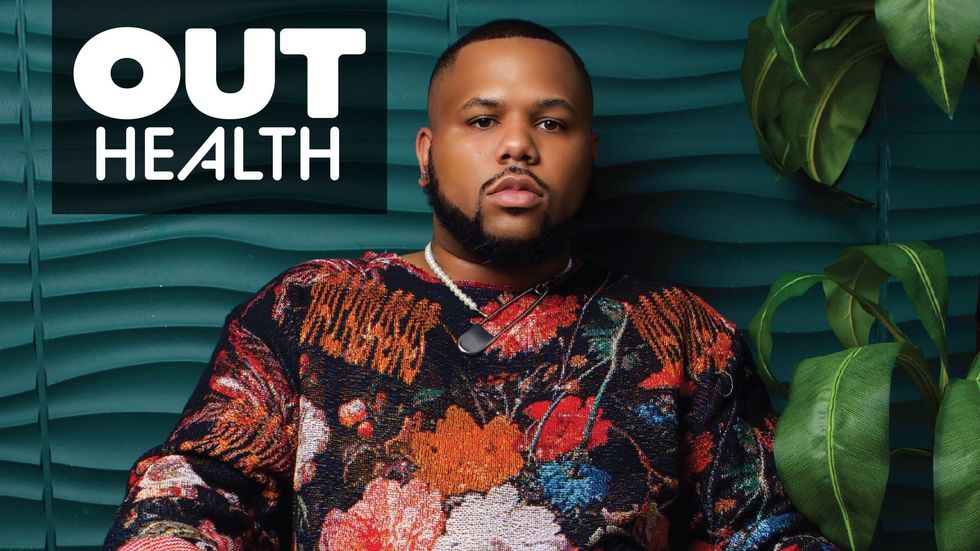Why injectable PrEP will be a gamechanger for Black LGBTQ+ Americans
I was born in Galveston County, Texas, the very place where, on June 19, 1865, enslaved Black people were finally told they were free more than two years after the Emancipation Proclamation had declared slavery illegal across the Confederacy. I grew up thinking about those who remained enslaved while the rest of the nation celebrated liberation. And how, once the excitement settled after finally having their freedom returned to them, the feeling of being left behind must have overtaken them. Thinking the nation advanced forward, all while my town in Galveston was somehow planted in the past, and the people of it, my people, had years taken from them they could never get back. Even generations later, this thought stings sharply, aching in my bones and whispering to me that progress must pull us all forward to take place fully.The significance of the soil I stood on throughout my childhood was never lost on me. It was land built on the backs of my ancestors, land marked by delay, struggle, and resilience. And now, 160 years later, as I carve out a path of my own, I stand on this land again, not just to remember, but to build something new. To ensure that my community is never forgotten or left behind again. I am a Black gay man who was part of the Purpose 2 trials, and I am proud to have learned that on the day before Juneteenth of this year, that very clinical trial has made lenacapavir the first long-acting injectable drug for HIV prevention approved by the Food and Drug Administration. Ian L. Haddock, founder and executive director of The Normal AnomalyThe Normal AnomalyIn a country still wrestling with the ghosts of medical injustice and systemic neglect, we cannot separate this achievement from history. The approval of lenacapavir by the FDA is more than a scientific milestone. It is a profoundly personal reckoning with our past and a hopeful stride toward a future we deserve. We are not far removed from the Tuskegee experiments, in which Black men were knowingly denied treatment for syphilis under the guise of research. That legacy left a scar. And deepening it, medical racism continues to persist, even in daily interactions with the health care system. Growing up, I heard stories of medical mistreatment from the men and women of my family because of the color of their skin. Their experiences seemed more like science-fiction horror than reality. And as someone who leads a health care navigation program for Black queer people in Texas, I still see the impact of that betrayal today, in the mistrust, in the fear, in the hesitation to engage with a system that has failed us.That mistrust is not unfounded. An analysis of 32,000 participants in U.S. clinical trials for new drugs in 2020 found that only 8 percent were Black, even though Black people make up about 14 percent of the population. Women also remain underrepresented in research, even in studies for conditions that disproportionately affect them. Experts say this underrepresentation has worsened in recent years. And as someone working every day with those most impacted by HIV, I carry the weight of multiple identities that have long been labeled as vulnerable: Black, queer, Southern. I dont just advocate for the community; I am the community. Ive seen firsthand how systems overlook us, how progress often moves forward without ever turning back to pick us up. So when the medical world began making bold strides in HIV prevention research, I knew it was critical that we not be left behind. That I not be left behind. Ian L. Haddock, founder and executive director of The Normal AnomalyThe Normal AnomalySo when I said yes to participating in the Purpose 2 trials, it wasnt just for myself. It was for all of us living at the intersection of race, gender, sexuality, geography, who have too often been left out of research for the very illnesses that affect us most. I see it as an act of resistance, of representation, and of reclamation for people who look, live, and love like me. I knew then, as I know now: If we want to rewrite our story, we have to be in it. If we wish for health care that reflects us, we must demand to be seen. And if we genuinely want liberation from this virus, then we must all be part of the solution.And the future this injectable offered was one with more freedoms. Just two doses a year, removing the daily burden of remembering a pill or showing up monthly for an injection. For many, especially in marginalized communities, this kind of ease and privacy can be the difference between prevention and risk. It gives you back power in your health care navigation and makes it more accessible, more possible, more human. But approval is only the beginning. We must ensure that access, education, and trust follow. At the Normal Anomaly Initiative, based here in Texas, I have turned my participation in this trial into a promise to make sure this tool reaches the people who need it most. As always, I remember the delay of freedom in my state of Texas, how the nations future reached my hometown two years too late. But this year, I stand proudly on that same soil with the news of the history I helped make. I am not just remembering the past, but celebrating a future that is inching closer to true liberation.Ian L. Haddock was a participant in the Purpose 2 trials, which led to the FDA approval of lenacapavir, a biannual injectable medication that reduces the risk of contracting HIV by 96 percent. Haddock is the founder of the Normal Anomaly Initiative, a leading advocacy group for Black LGBTQ+ communities in the South. Learn more at normalanomaly.org.




